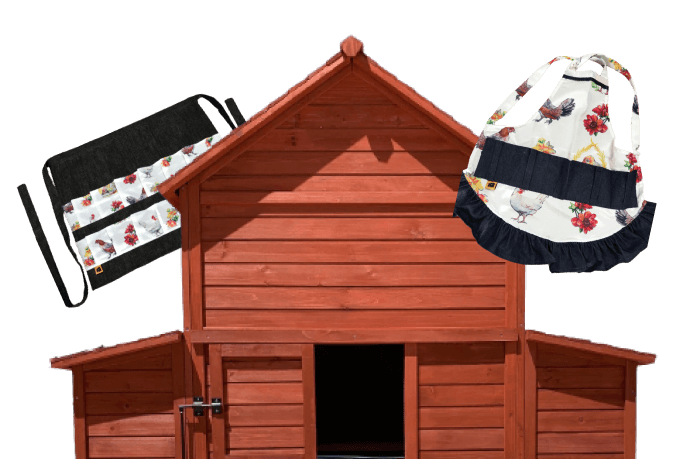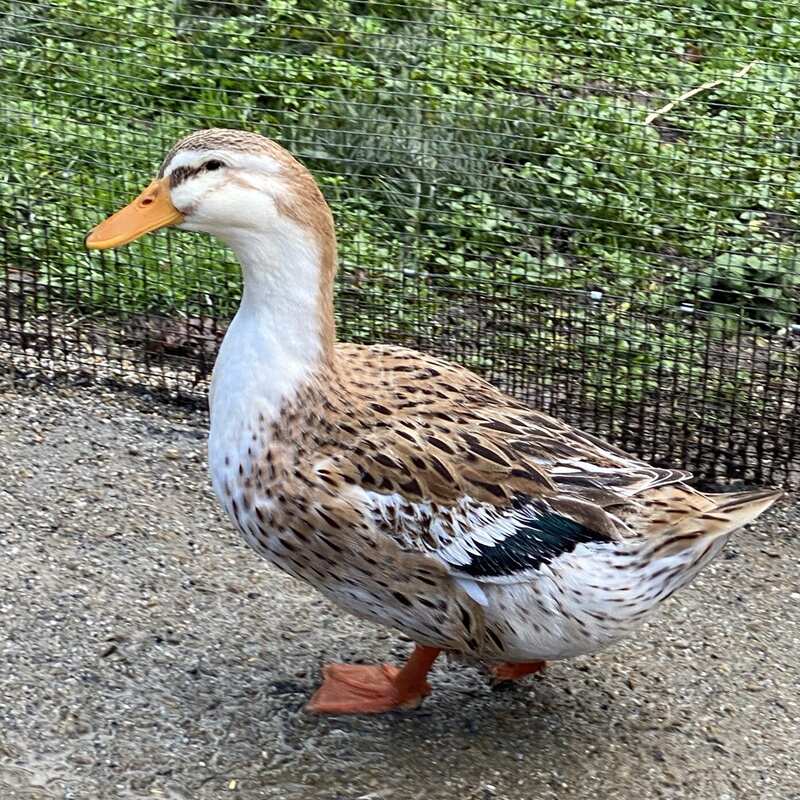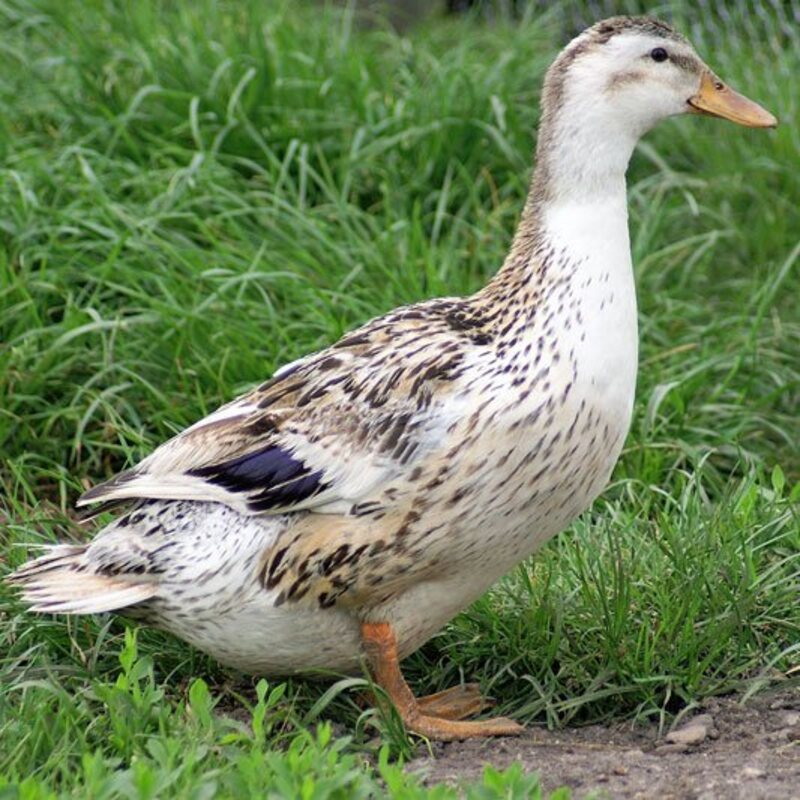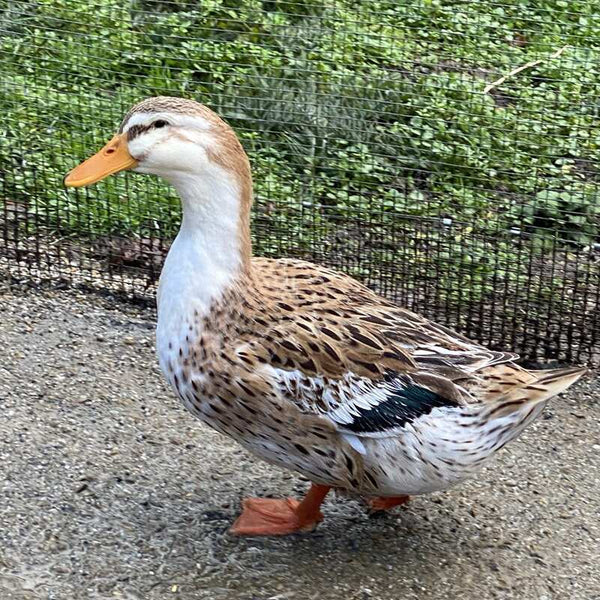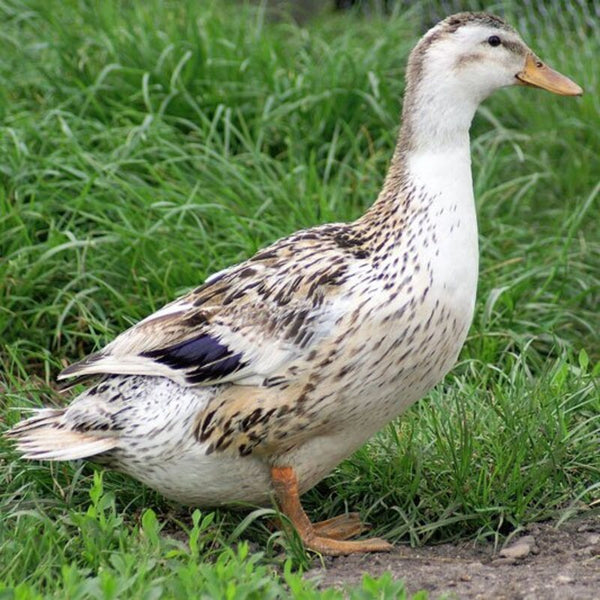Silver Appleyard Ducks
Silver Appleyard Ducks
The Silver Appleyard Duck is an easygoing, versatile breed ideal for both small and large flocks. Known for rapid growth and excellent egg-laying capabilities, it’s a great choice for dual-purpose use, providing both eggs and meat. This breed originated in the 1930s in England, developed by Reginald Appleyard, and was introduced to the USA in the late 1960s.
The Silver Appleyard gained popularity and was accepted into the American Poultry Standard of Perfection in 1998. With a typical egg production of 200–270 eggs per year, this duck can also go broody, successfully raising 8–12 ducklings. Female Appleyards are easily recognizable within a flock due to their lighter coloration, often compared to a light-colored Mallard with silver-white on the face, neck, and breast.
Frequently Asked Questions:
Is the Silver Appleyard Duck a rare breed?
Yes, while it has gained recognition, it’s still considered relatively rare.
Are Silver Appleyard Ducks docile?
Yes, they are generally friendly and easy to manage.
Do Silver Appleyard Ducks go broody?
Yes, they can go broody and will often raise 8–12 ducklings.
Are Silver Appleyard Ducks cold hardy?
Yes, they are well-suited to cold climates.
Are Silver Appleyard Ducks large or small?
They are a medium-to-large breed, making them ideal for dual-purpose use.
Silver Appleyard Ducks Facts
- Poultry Show Class: Ducks, Heavy Weight
- Weights: Hen—-7 lbs
- Drake—-9 lbs
- Purpose and Type: Egg and Meat Production; Exhibition
- Egg Color: White
- Egg Production: 120-175 per year
- Egg Size: Large to Extra Large
- Temperament: Calm
- Gender Accuracy: 90%
- Fertility Percentage: 60-75%
- Broody: Setters
- Mating Ratio: 6 Females to 1 Male
- Roost Height: Floor
- Country of Origin: England
- APA: Yes, Recognized by the Standard of Perfection in 1998
- TLC: Watch Status, Considered a Sustainable Heritage Duck Breed
- Breeder Farm Source: Poultry Breeding Farm developing our bloodlines or strain of Silver Appleyard Duck Breed since 2015.
Notice: We do not sell items on Amazon or other websites.
